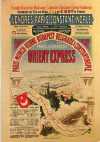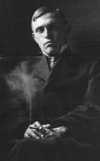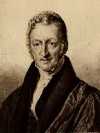Definition: (noun) The condition of having a fever.
Synonyms: feverishness, pyrexia.
Usage: His febricity was an indication that his wound had become infected.
Discuss
Source: The Free Dictionary
Definition: (noun) The condition of having a fever.
Synonyms: feverishness, pyrexia.
Usage: His febricity was an indication that his wound had become infected.
Discuss
Source: The Free Dictionary
 During the French Revolution, 6,000 knife-wielding fishwives and their husbands marched to the Palace of Versailles, gleefully singing songs about killing Marie Antoinette, whom they blamed for recent bread shortages. They broke into the palace early the next morning and beheaded two royal guards. The queen, her children, and her attendants hid in the king’s bedchamber while a large crowd gathered in the courtyard outside, demanding an audience. Aside from food, what did they demand of the king? Discuss
During the French Revolution, 6,000 knife-wielding fishwives and their husbands marched to the Palace of Versailles, gleefully singing songs about killing Marie Antoinette, whom they blamed for recent bread shortages. They broke into the palace early the next morning and beheaded two royal guards. The queen, her children, and her attendants hid in the king’s bedchamber while a large crowd gathered in the courtyard outside, demanding an audience. Aside from food, what did they demand of the king? Discuss
Source: The Free Dictionary
 October 9 is the anniversary of the Great Chicago Fire of 1871, which killed more than 250 people and destroyed more than 17,000 structures. Every year since 1925, the week in which October 9 falls has been observed nationwide as National Fire Prevention Week. Each year, the National Fire Protection Association (NFPA) announces a theme for National Fire Prevention Week and sets up programs to educate the public about a particular aspect of fire prevention. For example, one past theme was the importance of keeping smoke detectors in good working order. Discuss
October 9 is the anniversary of the Great Chicago Fire of 1871, which killed more than 250 people and destroyed more than 17,000 structures. Every year since 1925, the week in which October 9 falls has been observed nationwide as National Fire Prevention Week. Each year, the National Fire Protection Association (NFPA) announces a theme for National Fire Prevention Week and sets up programs to educate the public about a particular aspect of fire prevention. For example, one past theme was the importance of keeping smoke detectors in good working order. Discuss
Source: The Free Dictionary
 Enormously influential in shaping the rationalistic spirit of the 18th century, Diderot was a French encyclopedist, philosopher, novelist, dramatist, and art critic. After rejecting a career in law to pursue his own studies, he served as chief editor of the 35-volume Encyclopédie, one of the principal works of the Enlightenment, from 1745 to 1772. The controversial project was once the target of a seizure by government officials. Where were the manuscripts said to have been hidden? Discuss
Enormously influential in shaping the rationalistic spirit of the 18th century, Diderot was a French encyclopedist, philosopher, novelist, dramatist, and art critic. After rejecting a career in law to pursue his own studies, he served as chief editor of the 35-volume Encyclopédie, one of the principal works of the Enlightenment, from 1745 to 1772. The controversial project was once the target of a seizure by government officials. Where were the manuscripts said to have been hidden? Discuss
Source: The Free Dictionary
 Based on a belief in witchcraft, spirits, and demons, a superstition is the irrational idea that an object, action, or circumstance not logically related to a course of events influences its outcome. A common superstition in the Middle Ages was that the devil could enter a person’s body during the unguarded moment when he was sneezing. Some believe that the practice of saying “God bless you” began for this reason. What famous theologian accused the papacy of perpetuating superstition? Discuss
Based on a belief in witchcraft, spirits, and demons, a superstition is the irrational idea that an object, action, or circumstance not logically related to a course of events influences its outcome. A common superstition in the Middle Ages was that the devil could enter a person’s body during the unguarded moment when he was sneezing. Some believe that the practice of saying “God bless you” began for this reason. What famous theologian accused the papacy of perpetuating superstition? Discuss
Source: The Free Dictionary
Definition: (noun) Lavish quantities.
Synonyms: oodles, dozens, gobs, heaps, loads, lots, rafts, scads, scores, slews, stacks, tons, wads, piles, mountain.
Usage: Famished, the men ate lashings of spaghetti and meatballs when they finally reached their destination.
Discuss
Source: The Free Dictionary
 Synonymous with intrigue and luxury, the legendary Orient Express was a passenger train that ran from Paris to Istanbul for more than 80 years. Europe’s first transcontinental express train, it covered over 1,700 miles (2,740 km), and its lavishly furnished cars became the symbol of glamour for Europeans. It was discontinued in 1977 and revived in 1982 to run between London and Venice as the “Venice Simplon Orient Express.” An alluring backdrop for writers, the train line appears in what novels? Discuss
Synonymous with intrigue and luxury, the legendary Orient Express was a passenger train that ran from Paris to Istanbul for more than 80 years. Europe’s first transcontinental express train, it covered over 1,700 miles (2,740 km), and its lavishly furnished cars became the symbol of glamour for Europeans. It was discontinued in 1977 and revived in 1982 to run between London and Venice as the “Venice Simplon Orient Express.” An alluring backdrop for writers, the train line appears in what novels? Discuss
Source: The Free Dictionary
 Formerly Basutoland, the Kingdom of Lesotho was formally granted its independence from Great Britain on this day in 1966. It had been a British colony since the 1860s. Before the flag-changing ceremonies at midnight to symbolize Lesotho’s new autonomy, a colorful procession took place as King Moshoeshoe II (b. 1938) paraded in full regalia leading 100 chiefs into the capital city of Maseru. Discuss
Formerly Basutoland, the Kingdom of Lesotho was formally granted its independence from Great Britain on this day in 1966. It had been a British colony since the 1860s. Before the flag-changing ceremonies at midnight to symbolize Lesotho’s new autonomy, a colorful procession took place as King Moshoeshoe II (b. 1938) paraded in full regalia leading 100 chiefs into the capital city of Maseru. Discuss
Source: The Free Dictionary
 Runyon was an American short story writer and journalist. He served in the Spanish-American War as a teenager and moved to New York in 1911, where he began to write humorous stories about the city’s hoodlums, racketeers, bookies, and other underworld characters. The stories are written in a picturesque, slangy journalistic idiom often referred to as “Runyonese” or “Runyonesque.” What famous musical is based on a collection of his stories about a racy section of Broadway? Discuss
Runyon was an American short story writer and journalist. He served in the Spanish-American War as a teenager and moved to New York in 1911, where he began to write humorous stories about the city’s hoodlums, racketeers, bookies, and other underworld characters. The stories are written in a picturesque, slangy journalistic idiom often referred to as “Runyonese” or “Runyonesque.” What famous musical is based on a collection of his stories about a racy section of Broadway? Discuss
Source: The Free Dictionary
 Malthus was an English economist, sociologist, and demographer. He is best known for his 1798 pamphlet An Essay on the Principle of Population, in which he theorizes that poverty is an unavoidable consequence of population growth. He explained that populations grow at a geometric rate, while the means of subsistence expands arithmetically; thus, war, famine, and disease are necessary checks on population. In later editions, what did Mathus add as a fourth check on population? Discuss
Malthus was an English economist, sociologist, and demographer. He is best known for his 1798 pamphlet An Essay on the Principle of Population, in which he theorizes that poverty is an unavoidable consequence of population growth. He explained that populations grow at a geometric rate, while the means of subsistence expands arithmetically; thus, war, famine, and disease are necessary checks on population. In later editions, what did Mathus add as a fourth check on population? Discuss
Source: The Free Dictionary